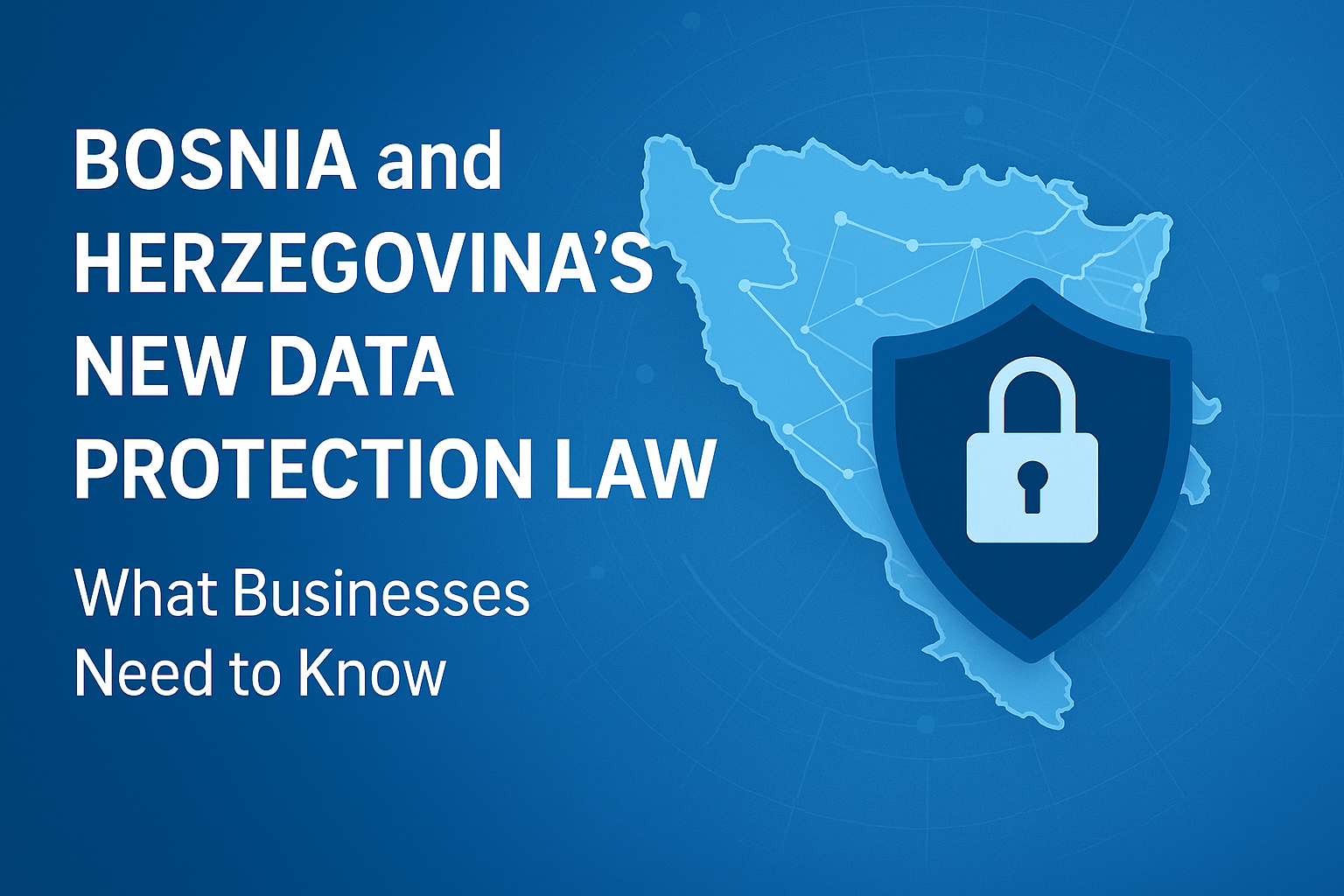New GDPR-Aligned Data Law in Bosnia: What Businesses Must Know
Introduction: A Legal Shift Businesses Can’t Afford to Miss
In a digital economy increasingly governed by data, regulatory compliance is more than a checkbox—it’s a competitive advantage. As of early 2025, Bosnia and Herzegovina has taken a pivotal step by adopting a new data protection law that closely mirrors the EU General Data Protection Regulation (GDPR). For companies operating in or outsourcing to this region, understanding this shift isn’t optional—it’s essential.
This blog post explores what this new law means for your organization, how to stay compliant, and why Bosnia and Herzegovina is becoming a more trustworthy outsourcing destination for data-sensitive industries.
The Law: What Has Changed?
In January 2025, the Parliament of Bosnia and Herzegovina passed a new Law on Personal Data Protection, signaling a strong commitment to aligning with European privacy standards. The law comes into effect 210 days after publication, giving companies until Q4 2025 to prepare (source).
Key Highlights:
- Broader Definition of Personal Data: Now includes online identifiers and location data.
- Clear Consent Requirements: Data subjects must provide freely given, specific, informed, and unambiguous consent.
- Increased Accountability: Companies must maintain records of processing activities.
- Mandatory Data Protection Officers (DPOs) for certain data-heavy organizations.
This mirrors many of the requirements found in the EU GDPR, signaling Bosnia and Herzegovina’s readiness to meet international expectations.
Why This Matters for BPO and International Clients
With SEEOS’s core focus on matchmaking between international clients and BPO providers in Southeast Europe, this legislative alignment adds legal reassurance to the strategic advantages of outsourcing to Bosnia and Herzegovina. Companies in industries such as e-commerce, telecommunications, and financial services now have a more predictable regulatory environment for handling personal data.
Best Practices: How Businesses Should Respond
To navigate this change successfully, companies should take the following proactive steps:
1. Review and Update Data Processing Agreements (DPAs)
Ensure your contracts with vendors or clients based in Bosnia and Herzegovina reflect the updated legal requirements.
2. Appoint a DPO If Required
If your operations involve large-scale processing of personal data, you may need a Data Protection Officer to oversee compliance.
3. Implement a Data Protection Impact Assessment (DPIA) Process
This is especially relevant if you use AI tools, biometric data, or location tracking—all newly emphasized in the law.
4. Strengthen Consent Mechanisms
Avoid pre-checked boxes. Ensure users have a real choice and that consent is recorded and revocable.
5. Train Your Teams
Whether you’re a BPO vendor or an international client, ensure your staff understands the basics of the new law and knows how to respond to data subject requests.
Real-World Application: How Businesses Are Adapting
A leading telecommunications provider working with a Bosnia-based BPO partner began implementing GDPR-like protocols in 2024, anticipating regulatory alignment. By updating their privacy notice, re-evaluating their customer database, and training agents, they reduced complaint resolution time by 30% and earned higher satisfaction scores.
Similarly, a global e-commerce brand partnered with a SEEOS-recommended provider in Sarajevo and conducted joint compliance audits to ensure readiness for the new law. As a result, they were among the first to fully comply and now advertise GDPR-compliant service hubs in their sales collateral—enhancing trust in DACH markets.
Conclusion: Compliance as a Strategic Asset
Bosnia and Herzegovina’s alignment with GDPR isn’t just a bureaucratic update—it’s a business opportunity. By complying early, companies can not only avoid penalties but also build customer trust, differentiate themselves, and de-risk outsourcing strategies in Southeast Europe.
SEEOS recommends taking immediate action to assess your readiness and leverage this regulatory shift as a value-added feature in your client proposals or vendor positioning. For ongoing updates and expert guidance, explore our Services for International Clients or learn more from our SEEOS Blog.
External Links for Reference
